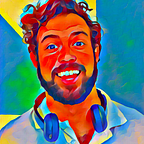Trade-offs are present in everything we do. Every time we make a decision (no decision is also a decision) we are choosing something over everything else.
Even though there’s nothing incomprehensible about trade-offs, most of us go through life as if we didn’t understand this concept. We expect perfection even though we know that the real world isn’t perfect, and we want to do everything even though we know we have limited time/energy/focus. Some examples:
- Entrepreneurs wish more stability, employees want more freedom
- If we live in the tropics we complain about the heat, if we live in a cold place we wish to be in the tropics
- When single we want a partner, when in a relationship we want to be single
- A workaholic parent who is frustrated because his/her relationship with his/her children is getting worse
“There are no solutions, only tradeoffs”
-Thomas Sowell
Everyday we make hundreds of decisions, maybe thousands. What are we going to wear, what are we going to work on , who we are going to call, which messages we will reply, what we will do after work. Other days we make “bigger” decisions like starting a relationship, starting a business, changing careers, and so forth. We tend to forget about how we got to where we are now. We chose our jobs, our friends, our habits and so forth. As time goes by, we start complaining about our jobs, relationships, our neighborhood, as if somebody else chose them.
Nothing is perfect.
Even though we “know that nothing is perfect”, we don’t act as we did. In my case, I have realized how idealist I am, and how it causes negative emotions like anxiety, contempt, or even anger. Internalizing that nothing is perfect means accepting things as they are, including their flaws. Some examples:
- If you drink a lot tonight you will have fun tonight, but you will probably get a hangover the next day
- You can’t expect someone who is very passionate and spontaenous to also be logical and calculating or the opposite
- Traveling is an amazing adventure but there will be days when you get really homesick
You CAN’T do everything.
The day only has 24 hours. Our bodies require around 8 hours of sleep, and also need food and exercise. Most people work 8+ hours and also have relationships to take care of (digitally and in the real world). People have side projects (teams, businesses, blogs, charity etc.) and also want to have fun, read books, watch movies/series, and have a drink every now and then. It’s very hard to fulfill all those needs and wants, and it’s nearly impossible if you don’t structure your life and respect your schedule.
Wanting to do a lot of things is my main driver of anxiety. Ideally I would publish at least one blog post every week, read 4 books per month, workout every day, surf every week, perform at my job, have a side business, learn to play an instrument, and the list goes on. Already getting anxious 😖
We have limited resources. We don’t only have limited time, we also have limited focus and energy. Since we are limited we need to choose wisely how we allocate these precious resources.
This is where the concept of opportunity cost comes in:
Saying yes to one thing means saying no to everything else
Everyone knows this, yet most of us don’t act as if we were aware of it. We go through life like a pinball, reacting to everything that comes up. It’s important to know our priority and act accordingly. Again some examples:
- You can’t party every night and wake up early for working out
- Creative work requires alone time, so you can’t hang out all the time
- You can’t work 10+ hours a day and be the best parent in the world
- Watching series and movies won’t help you read more books, reading a lot won’t include you in the conversation when people start talking about what they are watching
- Traveling around the world doesn’t build your CV, but building your CV won’t give you the experiences world travel will
What’s a good hint that you are not aware of tradeoffs?
- The day past by and you didn’t do anything that you wanted to do, or thought that was important.
- You say you want to achieve X but you haven’t got any progress in the last months.
This happens to me often, which is very frustrating. For instance, I said I was going to publish 52 articles this year and 10+ weeks have past by since the last time I published”. This didnt happen because I couldn’t do it, I was doing something else.
We live and plan as if we had infinite energy and the day had 72 hours. We want to do everything, but end up doing nothing (analysis paralysis).Truth is that we have to let go a lot of what’s not important to focus on what matters the most.
Do Less but better.
In his book Essentialism ,Greg McKeown addresses this dilemma. We can’t do everything, but we can focus on what matters:
Instead of asking, “What do I have to give up?” they ask, “What do I want to go big on?” The cumulative impact of this small change in thinking can be profound.
As Seneca once said: “It is not that we have a short time to live, but that we waste a lot of it.”. Many of us waste a lot of time/energy/focus doing things that don’t matter. By being aware of how we spend these precious resources, we can make better decisions that help us get closer to our goals and dreams. We can learn to accept and love imperfections if we acknowledge that we can’t separate them from what we those things/persons we value and love.
